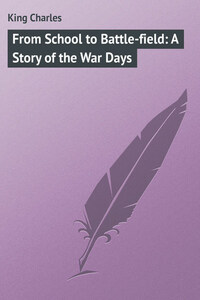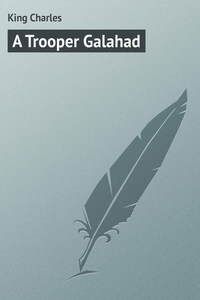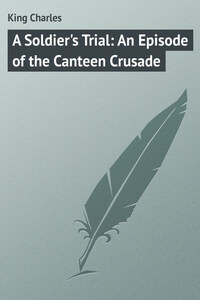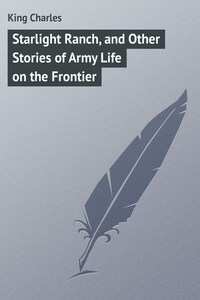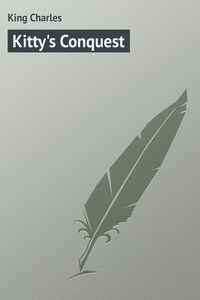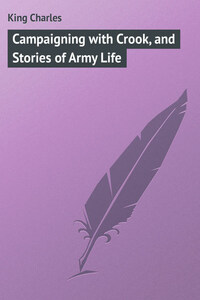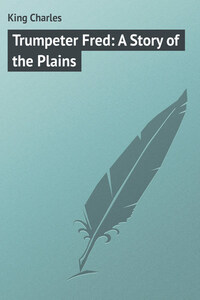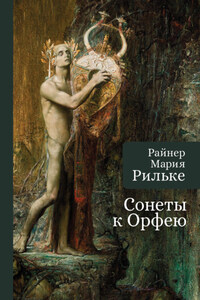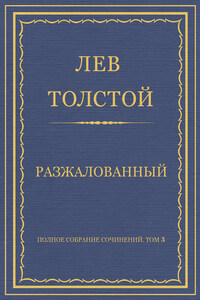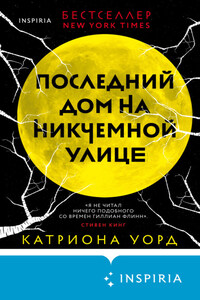"If there's anything I hate more than a rainy Saturday, call me a tadpole!" said the taller of two boys who, with their chins on their arms and their arms on the top of the window-sash, were gazing gloomily out over a dripping world. It was the second day of an east wind, and every boy on Manhattan Island knows what an east wind brings to New York City, or used to in days before the war, and this was one of them.
"And our nine could have lammed that Murray Hill crowd a dozen to nothing!" moaned the shorter, with disgust in every tone. "Next Saturday the 'Actives' have that ground, and there'll be no decent place to play – unless we can trap them over to Hoboken. What shall we do, anyhow?"
The taller boy, a curly-headed, dark-eyed fellow of sixteen, whose long legs had led to his school name of Snipe, turned from the contemplation of an endless vista of roofs, chimneys, skylights, clothes-lines, all swimming in an atmosphere of mist, smoke, and rain, and glanced back at the book-laden table.
"There's that Virgil," he began, tentatively.
"Oh, Virgil be blowed!" broke in the other on the instant. "It's bad enough to have to work week-days. I mean what can we do for – fun?" and the blue eyes of the youngster looked up into the brown of his taller chum.
"That's all very well for you, Shorty," said Snipe. "Latin comes easy to you, but it don't to me. You've got a sure thing on exam., I haven't, and the pater's been rowing me every week over those blasted reports."
"Well-l, I'm as bad off in algebra or Greek, for that matter. 'Pop' told me last week I ought to be ashamed of myself," was the junior's answer.
And, lest it be supposed that by "Pop" he referred to the author of his being, and thereby deserves the disapproval of every right-minded reader at the start, let it be explained here and now that "Pop" was the head – the "rector" – of a school famous in the ante-bellum days of Gotham; famous indeed as was its famous head, and though they called him nicknames, the boys worshipped him. Older boys, passed on into the cap and gown of Columbia (items of scholastic attire sported only, however, at examinations and the semi-annual speech-making), referred to the revered professor of the Greek language and literature as "Bull," and were no less fond of him, nor did they hold him less in reverence. Where are they now, I wonder? – those numerous works bound in calf, embellished on the back with red leather bands on which were stamped in gold – 's Virgil, – 's Horace, – 's Sallust, – 's Homer? Book after book had he, grammars of both tongues, prosodies likewise, Roman and Greek antiquities, to say nothing of the huge classical dictionary. One could cover a long shelf in one's student library without drawing upon the works of any other authority, and here in this dark little room, on the topmost floor of a brownstone house in Fourteenth Street, a school-boy table was laden at its back with at least eight of Pop's ponderous tomes to the exclusion of other classics.
But on the shelf above were books by no means so scholarly and far more worn. There they stood in goodly array, Mayne Reid's "Boy Hunters," "Scalp Hunters," "The Desert Home," "The White Chief," flanked by a dusty "Sanford and Merton" that appeared to hold aloof from its associates. There, dingy with wear though far newer, was Thomas Hughes's inimitable "Tom Brown's School-Days at Rugby." There was what was then his latest, "The Scouring of the White Horse," which, somehow, retained the freshness of the shop. There were a few volumes of Dickens, and Cooper's Leatherstocking Tales. There on the wall were some vivid battle pictures, cut from the London Illustrated News, – the Scots Grays in the mêlée with the Russian cavalry at Balaklava; the Guards, in their tall bearskins and spike-tail coats, breasting the slopes of the Alma. There hung a battered set of boxing-gloves, and on the hooks above them a little brown rifle, muzzle-loading, of course. The white-covered bed stood against the wall on the east side of the twelve-by-eight apartment, its head to the north. At its foot were some objects at which school-boys of to-day would stare in wonderment; a pair of heavy boots stood on the floor, with a pair of trousers so adjusted to them that, in putting on the boots, one was already half-way into the trousers, and had only to pull them up and tightly belt them at the waist. On the post hung a red flannel shirt, with a black silk neckerchief sewed to the back of the broad rolling collar. On top of the post was the most curious object of all, – a ribbed helmet of glistening black leather, with a broad curving brim that opened out like a shovel at the back, while a stiff, heavy eagle's neck and head, projecting from the top, curved over them and held in its beak an emblazoned front of black patent leather that displayed in big figures of white the number 40, and in smaller letters, arching over the figures, the name, Lady Washington. It was the fire-cap of a famous engine company of the old New York volunteer department, – a curious thing, indeed, to be found in a school-boy's room.
